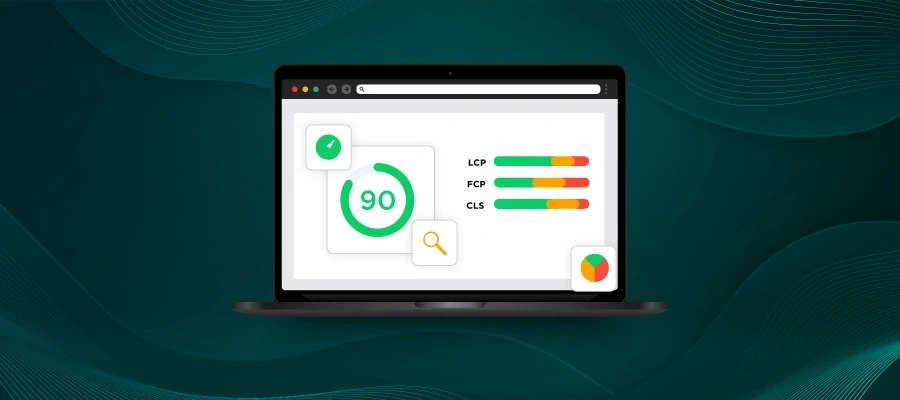Running an e-commerce store can be hard. Most business owners are extremely well-acquainted with the dynamics of the markets in which they operate – they are experts when it comes to drafting product value propositions, pricing tactics, competitive strategies, etc. But, a common theme in my conversations over the last three years with e-commerce business owners is that they don’t know their infrastructure nearly as well.
The most important component of an effective e-commerce infrastructure strategy is hosting, and choosing the right hosting provider is critical to success.
If you’re considering hosting your online storefront with a dedicated hosting provider or re-negotiating your contract with one, here are some questions you should ask potential vendors before you make a decision:
Question 1: How familiar is your team with purpose-built e-commerce platforms and applications?
Sub-Questions:
- How many Magento-powered storefronts have you hosted?
- What are the different sizes of stores you’ve hosted with a specific e-commerce application? (like Magento)
- Have you hosted storefronts with different versions of the same platform?
Ensure that your hosting provider has a good understanding of e-commerce platforms. Besides being able to successfully host an application, the provider should be familiar with the nuances of specific platforms. More importantly, they should be familiar with the vulnerabilities that these applications have, and know how to overcome them both from a hosting, architecture, and security perspective.
Question 2: How do you ensure 100% application availability, especially during times of peak demand?
Sub-Questions:
- Do you scale capacity automatically during traffic surges?
- What happens when there is a traffic surge that is 10X or 100X the usual traffic, causing my capacity to get used up?
- Is your auto-scaling reactive or predictive?
In dedicated hosting environments, infrastructure is sized for the estimated peak load on the system. When not at maximum capacity, you’re over-provisioned and over-spending. If you try to reduce your costs and size the architecture for a more typical load on the system, you run the risk of going down at your busiest times. Many of the companies we speak to on a daily basis have experienced poor performance and downtime, especially during Holiday Season, because their peaks turn out to be more than they planned for, thus disappointing end users.
Further, any addition to provisioned capacity is reactive and not in real time – whereas the inherent nature of application traffic is dynamic and unpredictable. An application’s scaling needs are open-ended and instantaneous, which means that the only way to cope with them is via auto-scaling. You should ensure that scaling is automated, happens in real time, and without your storefront’s availability taking a hit during the process.
Question 3: How do you improve my site performance?
Sub-Questions:
- How will you enable faster page load times? What techniques do you use?
- Can you optimize how my web page is delivered?
- Do you provide a CDN? Which one do you use?
- Can I integrate my own CDN?
Slow is the new down. 47% of consumers expect a web page to load in 2 seconds or less. 40% of people abandon a website that takes more than 3 seconds to load. Mid-market e-commerce businesses are growing, even in the shadow of giants like Amazon, because they are creating memorable and distinct user experiences that ultimately eclipse the “big box” mentality of the large players. Performance is critical to delivering great user experience.
With dedicated hosting providers, you rarely get performance optimization. Remember – their core focus is hosting your application, not running it effectively.
Question 4: Do you provide disaster recovery solutions?
Sub-Questions:
- How resilient is your architecture?
- How will my application run if your infrastructure experiences downtime?
- How can you help if my application goes down due to bad code?
- How quickly can you get me back up and running?
- (If the solution is cloud-hosted) Can I still be up and running if parts of the cloud go down?
Whether it’s bad code or an outage, your hosting provider must ensure that they have a business continuity mechanism built in, so your business isn’t affected in the event of unexpected downtime. The fact is – outages, which are outside the control of the hosting provider, will happen. Even the largest public cloud environments have had some downtime. It’s bad for any business, especially e-commerce, as even a few minutes of downtime can directly translate to millions in lost revenue, and indirectly to erosion in brand loyalty. Ensure your hosting provider can bring you back up and restore your application and data to its last known state as soon as disaster strikes.
Question 5: How do you protect my site from cyber threats?
Sub-Questions:
- Will you provide a web application firewall (WAF)?
- How do you identify malicious IPs or bad bots (and block access to my infrastructure/instance)?
- Can you prevent DDoS attacks?
- How do you protect my application layer?
According to an industry report, cybercriminals accounted for up to 13.5% of all retail login attempts in Q1 2018, and 32.8% of new account creations. Losses from these and other forms of e-commerce fraud could top $19 billion this year alone. A malicious attack can result in significant damage to a storefront’s brand, revenue, and customer loyalty.
Moreover, as online stores migrate to the public cloud, the attack surface area of applications increases significantly. Robust cybersecurity measures must be adopted to protect the business and its customers.
A basic web application firewall (WAF) just doesn’t cut it anymore, for anyone. Ensure that your hosting provider is employing sophisticated cybersecurity measures to prevent large scale attacks, and even the seemingly minor ones. Ask them if they target attacks specific to e-commerce and the platform you run, and if they do all of this proactively. Ask them how they combat attacks initiated by malware, DDoS, and the myriad of bad bots traversing the Internet looking for storefronts to exploit. Security is an arms race – once the most recent attacker has been blocked, the next one gets more sophisticated. Make sure your dedicated hosting provider has expertise in security – unfortunately, most don’t.
Question 6: How much of my workflow will be automated?
Sub-Questions:
- From migrating my application to setting it up and moving through the different stages of development, staging, and production – can it all be done with just a single click?
- Does this process have people involved?
- Can it be done in system time versus people time?
- How easy is it to build from there, configure policies, to slice and dice traffic to analyze shopping behavior as well as abnormal patterns?
Okay, we should leave it right there. The fact that traditional dedicated hosting providers throw people at the problem should be enough to scare you away from this outdated approach.
What you should look for is complete automation – so that every process can be done instantaneously, at the push of a button. If you can’t push content or functionality out at the click of a button (or invalidate them the same way), it doesn’t matter how inexpensive your hosting provider is. Your productivity and revenue will suffer, no matter what.
Question 7: If I want to add more features and services, will it increase complexity, maintenance hassles, and costs?
Sub-Questions:
- Are these features provided by you or third-party vendors?
- Are these features plug-and-play or do they need complicated, time-intensive deployments?
- How are service requests resolved? Who is responsible when there’s an issue?
In almost every hosting environment, as you layer additional features and functionalities, the complexity of your infrastructure increases – leading to maintenance hassles and higher costs.
An ideal hosting provider can not only get you started quickly, but will provide you with a bundled solution with sophisticated plug-and-play features built from the ground up, so management and troubleshooting are easier and faster.
As an e-commerce business owner, your application is your business! If you truly wish to focus on your business (versus constantly worrying about your infrastructure), you need the support of a hosting partner who isn’t bound by the shackles of servers and other hardware. You need someone that focuses on application success – uptime, performance, security, and user experience.
Dedicated hosting was a good fit for yesterday’s challenges. Today? Not so much. Learn more about better alternatives available today. Reach out to us at sales@webscalenetworks.com or fill out this form for a free consultation.













